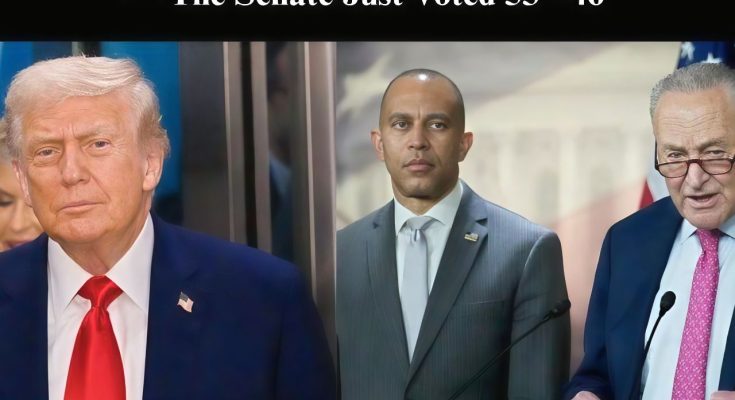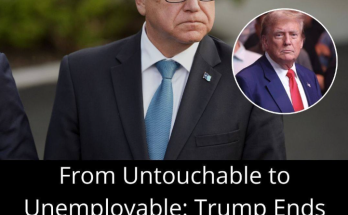
This article may contain commentary
which reflects the author’s opinion.
The United States Senate has advanced the confirmation of President Donald Trump’s nominee Anne-Leigh Moe to serve as U.S. District Judge for the Middle District of Florida. The vote was 53–46. Trump celebrated the confirmation with a post on his Truth Social account.
“I am pleased to announce the nomination of Anne-Leigh Gaylord Moe to serve as Judge on the United States District Court for the Middle District of Florida,” Trump wrote.
“Anne-Leigh has fiercely advocated for Sunshine State residents as a Judge on Florida’s Second District Court of Appeals, and as Trial Judge on Florida’s Thirteenth Judicial Circuit Court. Anne-Leigh will prioritize LAW AND ORDER unlike other activist Judges who put the safety of Illegal Criminals over the safety of AMERICANS. Congratulations Anne-Leigh!” Trump added.
Moe has served as a judge on Florida’s Second District Court of Appeal since 2022. Before that, she spent nearly a decade as a circuit judge in the state’s Thirteenth Judicial Circuit, which includes Hillsborough County. She previously worked as an assistant state attorney in Tampa.
Her confirmation marks another major judicial win for the Trump administration as it continues to fill vacancies across the federal courts.
Earlier this month, Senate Republicans confirmed over 100 of President Trump’s nominees, clearing the backlog of pending appointments in a single move.
The confirmations came after the Senate GOP changed its rules last month to allow most executive branch nominees to be approved en masse rather than individually. The change does not apply to Cabinet secretaries or judicial nominees.
The move represents the largest block of confirmations since the rule change took effect. Among those approved were former Republican Senate candidate Herschel Walker, who will serve as ambassador to the Bahamas, and Sergio Gor, former director of the White House Presidential Personnel Office, who will serve as ambassador to India.
Republicans invoked the so-called “nuclear option” — a party-line rules change — to speed up the confirmation process after months of Democratic opposition had slowed it to a crawl.
Some Republicans briefly considered allowing President Trump to make recess appointments, which would enable him to fill positions while the Senate was not in session. However, GOP leaders ultimately rejected that idea, citing concerns that it could backfire when their party is next in the minority.
The mass confirmation marks a major victory for Trump as his administration continues to fill key posts across the federal government amid ongoing partisan gridlock.
In September, Senate Republicans weighed changes to the chamber’s confirmation process as they faced a backlog of judicial nominations due to stall tactics by minority Democrats.
President Donald Trump had criticized Judiciary Committee Chairman Chuck Grassley (R-Iowa) for preserving the Senate’s “blue slip” tradition, which allowed home-state senators to weigh in on nominees and could effectively block their confirmation if the slips were withheld.
GOP lawmakers considered several proposals before a Wednesday meeting to speed up confirmations. According to The Hill, the leading option mirrored a Democratic plan floated two years earlier that would have permitted a single vote on as many as 10 nominees. Other ideas included sharply reducing debate time, making some nominations nondebatable, and cutting the required procedural votes.
Because rule changes required only a simple majority, Republicans could have acted without Democratic support. But such a move—described as a “nuclear option”—would have underscored the partisan nature of the fight. A GOP working group was tasked with hammering out the details, according to the report.
“Everybody had been talking through various options,” Alabama GOP Sen. Katie Britt, the leader of the group, said. “One of the things that that process did was empower the committee process.”
Britt mentioned she had been collaborating with Democrats to develop a suitable rules change. The group worked through some of the August recess to find a path forward for the remaining nominations.


